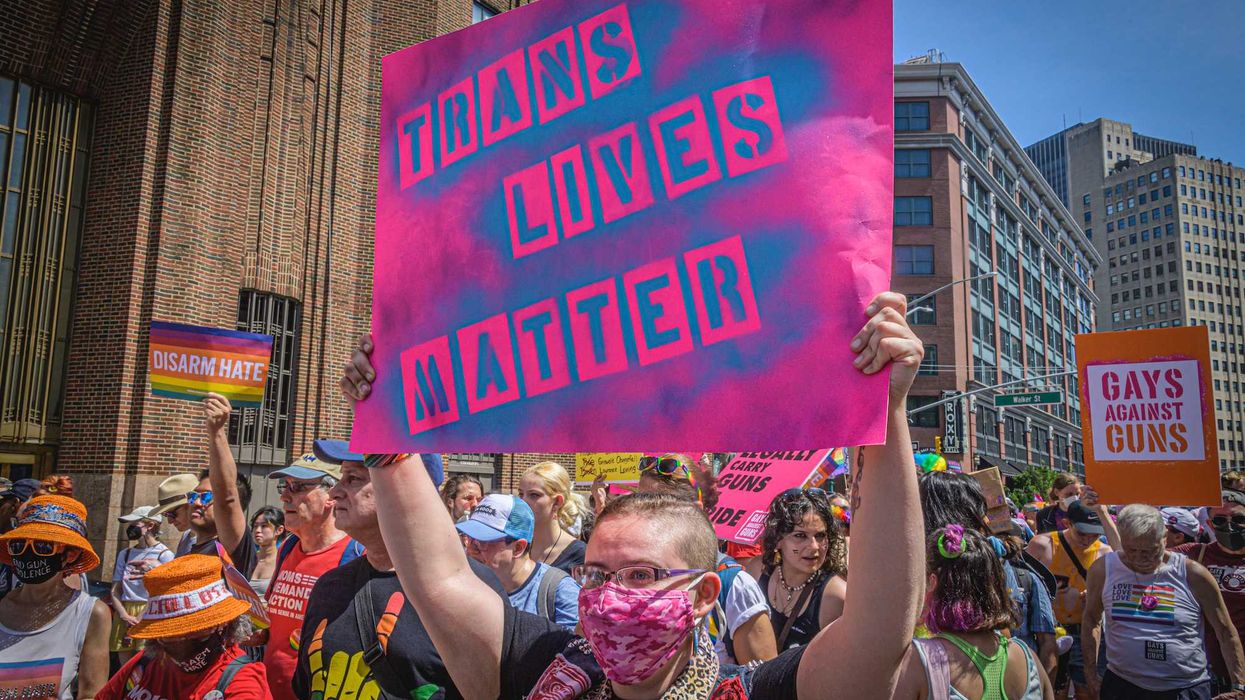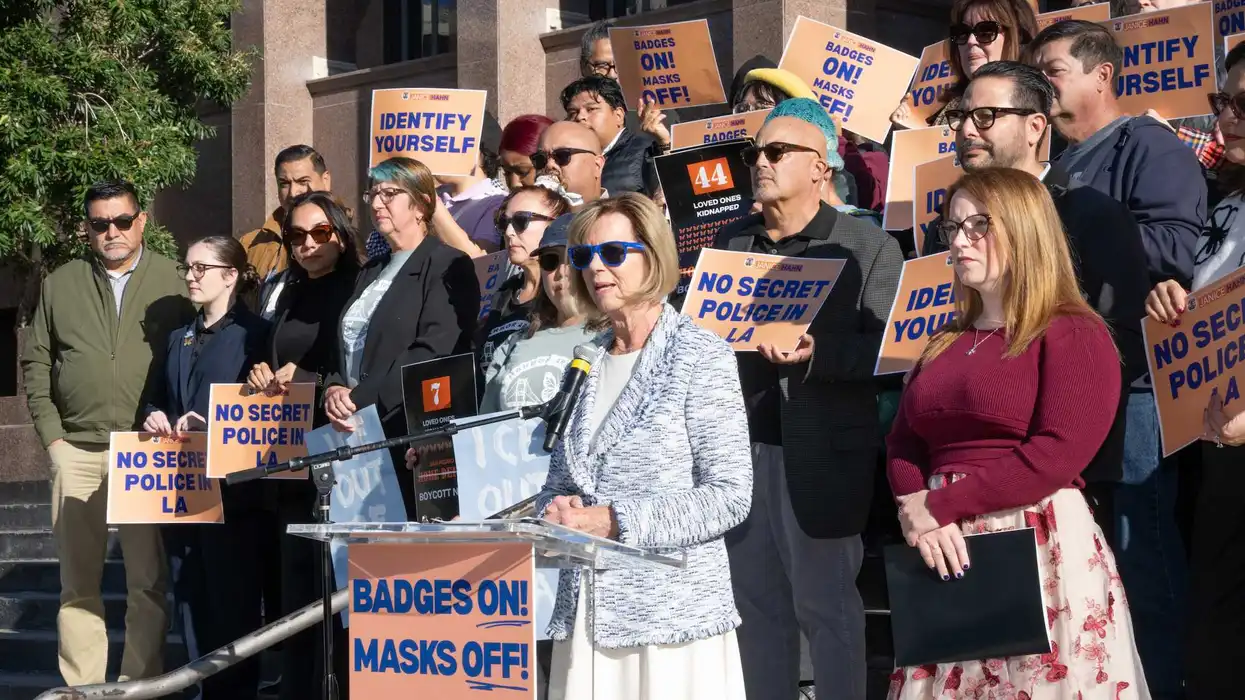BELMONT, Calif. (AP) -- This is the new look of high school sex ed: A roomful of teens, 14-year-olds mostly, is told that a girl and boy meet at a school dance. The boy drives her home. They kiss. What happens next, over the girl's protests, leaves him confused and her crying, no longer a virgin.
"Raise your hands if you think this was rape," health educator Justin Balido asks the Carlmont High School freshmen, drawing them into a debate that has preoccupied college administrators, lawmakers and the courts.
 In this Oct. 8, 2015, photo, Justin Pace reads along with classmates during a ninth-grade Teen Talk High School class at Carlmont High School in Belmont, California.(AP/Jeff Chiu)
In this Oct. 8, 2015, photo, Justin Pace reads along with classmates during a ninth-grade Teen Talk High School class at Carlmont High School in Belmont, California.(AP/Jeff Chiu)
Sex education in American schools is evolving beyond slideshows on reproductive biology and lectures on avoiding pregnancy and sexually transmitted diseases. The new focus: teaching students communication skills, such as the "yes means yes" standard for seeking and giving consent during intimate encounters.
After taking hold on college campuses, "yes means yes," also known as affirmative consent, is trickling down to high schools and even some middle schools, as educators seek to give students tools to combat sexual violence.
"Yes means yes" means sex is consensual only when both partners are sober and clearly state their willingness to participate through "affirmative, conscious and voluntary agreement," every step of the way.
Are high schoolers ready for this?
 In this Oct. 8, 2015, photo, Nathan Zanecki, right, speaks next to Marta Baumann during a ninth-grade Teen Talk High School class at Carlmont High School in Belmont, Calif. Sex education in some American high schools is evolving beyond pregnancy and disease prevention to include lessons aimed at curbing sexual assaults. (AP/Jeff Chiu)
In this Oct. 8, 2015, photo, Nathan Zanecki, right, speaks next to Marta Baumann during a ninth-grade Teen Talk High School class at Carlmont High School in Belmont, Calif. Sex education in some American high schools is evolving beyond pregnancy and disease prevention to include lessons aimed at curbing sexual assaults. (AP/Jeff Chiu)
Many groups that promote an abstinence approach to sex education think not. They worry that the effort to prevent sexual assaults is giving too many teenagers the idea that sex is OK.
"In the midst of this conversation, are the root causes being addressed? I would argue that they really aren't," Valerie Huber, president of Ascend, formerly called the National Abstinence Education Association, said. "This discussion is getting reduced to a palliation rather than a solution."
The impetus for redefining mutual consent was pushed on college campuses by activists who reported being raped by fellow students. But younger teens and children are by no means immune: The U.S. Education Department is currently investigating 53 sexual violence cases at 51 elementary and secondary schools in more than two dozen states, including California, Colorado, Illinois, Ohio and Texas.
 In this Oct. 8, 2015, photo, Justin Balido, peer health coordinator and senior health educator with Health Connected, speaks to a ninth-grade Teen Talk High School class at Carlmont High School. (AP/Jeff Chiu)
In this Oct. 8, 2015, photo, Justin Balido, peer health coordinator and senior health educator with Health Connected, speaks to a ninth-grade Teen Talk High School class at Carlmont High School. (AP/Jeff Chiu)
"I have seen a crying need for students to be safe and prepared, and for their schools to ensure that all students on a campus understand what is acceptable at the school and ways to be made safe," said Catherine Lhamon, the department's assistant secretary for civil rights.
Sexual violence was the top policy focus among the 163 sex ed-related bills introduced in statehouses this year, according to the Sexuality Information and Education Council. Nearly two dozen bills covered instruction in healthy relationships, communication, or consent.
California is the first U.S. state to require "yes means yes" instruction in public high schools, starting next year. Lawmakers in Michigan, Minnesota and Oklahoma have introduced similar legislation, and at least 19 states require some kind of training on healthy relationships, according to the National Conference of State Legislatures.
"Young boys and young men, I don't think they get to a college campus and all of a sudden start acting out sexually irresponsible behavior. It starts way earlier than that," said California Senate President Kevin de Leon, the author of the state's college and high school affirmative consent laws.
California and New York are the only states requiring affirmative consent on college campuses, but many colleges nationwide have voluntarily adopted the same standard to better handle sexual violence.
The U.S. Education Department takes no position on "yes means yes" or "no means no." Its guidelines simply encourage age-appropriate training in elementary and secondary schools, including clear explanations of the consequences of unwanted sexual conduct and each school system's definition of consent.
Some in Congress want to make sure students learn to avoid date rape beginning in middle school. As part of a rewrite of the No Child Left Behind education law, the Senate voted to require schools applying for federal funds to reduce violence and drug abuse to describe how they educate students to clearly communicate about sex, and prevent coercion, violence, or abuse.
"Sex ed stuff is a subject for skittishness among some, but we're talking about crimes here. We're talking about crime prevention," said Sen. Tim Kaine of Virginia, who co-sponsored the provision with his fellow Democrat, Sen. Claire McCaskill of Missouri. "We assume people just know good or bad behaviors because it's in the ether, but ... people need to be taught appropriate behaviors, what's right, what's wrong, what are lines you don't cross."
The House version of the rewrite doesn't include this "safe relationship" provision and would need to be reconciled with the Senate provision in conference committee. It's not clear if an agreement struck Thursday on a compromise bill will include the Kaine-McCaskill amendment.
Carlmont High's school district, midway between San Francisco and San Jose, isn't waiting for a federal or state mandate. Here, affirmative consent training already begins in middle schools as part of a comprehensive approach to sex education.
"You can't just teach about anatomy and birth control and sexually transmitted infections," said Perryn Reis, associate director of Health Connected, a nonprofit that provides sex education in Carlmont and 36 other Northern California schools. "The message around 'no means no' was in our curriculum for a long time, and as soon as the state changed it to 'yes means yes,' we made the change, too."
And so Balido leads students through the story of David and Michelle, exposing the missed cues, communication gaps and ingrained assumptions in the fictional teens' disastrous encounter.
Was it rape? About a third of the students think so.
Was it something less? Two others raise their hands.
Most aren't sure, prompting more questions: Did the girl invite intercourse by dressing provocatively? Did she try hard enough to stop it? What should the boy have done, to make sure she was willing?
"Whose fault is this?" Balido asks, eliciting several loud "David's" and a smattering of quieter "Both."
"It's kind of both their faults that maybe Michelle should have gotten to know him better or tried to act in self-defense," says Nathan Zamecki, 14.
Audrey Crook, also 14, says the absence of struggle should not absolve David or implicate Michelle in the slightest.
"She didn't know what to do, she just froze, and it's not like, 'Now it's OK," Audrey says. "It isn't her fault she didn't keep saying no... He forced himself on her."
Balido steps in to settle the question, making it clear that this was rape under California's new law.
"Sexual assault or rape is the choice that the perpetrator makes, and it is never the victim's fault," the teacher says.
Here's what affirmative consent sounds like, he continues: "Maybe" means "no." ''OK," ''sure," and "fine" also mean "no." Anything short of an enthusiastic "yes" means "no," he says.
"If I'm not sure my potential partner is playing hard to get, what can I do? Ask, right?" he says. "I can ask them."

 In this Oct. 8, 2015, photo, Justin Pace reads along with classmates during a ninth-grade Teen Talk High School class at Carlmont High School in Belmont, California.(AP/Jeff Chiu)
In this Oct. 8, 2015, photo, Justin Pace reads along with classmates during a ninth-grade Teen Talk High School class at Carlmont High School in Belmont, California.(AP/Jeff Chiu)
 In this Oct. 8, 2015, photo, Nathan Zanecki, right, speaks next to Marta Baumann during a ninth-grade Teen Talk High School class at Carlmont High School in Belmont, Calif. Sex education in some American high schools is evolving beyond pregnancy and disease prevention to include lessons aimed at curbing sexual assaults. (AP/Jeff Chiu)
In this Oct. 8, 2015, photo, Nathan Zanecki, right, speaks next to Marta Baumann during a ninth-grade Teen Talk High School class at Carlmont High School in Belmont, Calif. Sex education in some American high schools is evolving beyond pregnancy and disease prevention to include lessons aimed at curbing sexual assaults. (AP/Jeff Chiu)
 In this Oct. 8, 2015, photo, Justin Balido, peer health coordinator and senior health educator with Health Connected, speaks to a ninth-grade Teen Talk High School class at Carlmont High School. (AP/Jeff Chiu)
In this Oct. 8, 2015, photo, Justin Balido, peer health coordinator and senior health educator with Health Connected, speaks to a ninth-grade Teen Talk High School class at Carlmont High School. (AP/Jeff Chiu)






